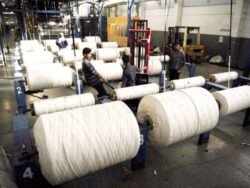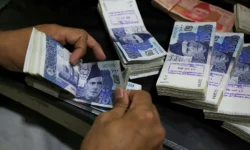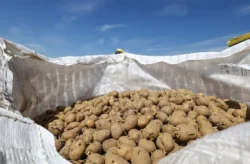Mining-related concerns in Pakistan

22 November 2024
Published in: The Express Tribune
Pakistan is apparently endowed with huge reserves of minerals, with significant commercial value. Although mineral extraction has been a cause of major ecological damage and labour exploitation, many countries around the world have come up with means to extract mineral wealth while paying increasing heed to labour rights and sustainability concerns. Given the state of lax labour and environmental standards in a country like Pakistan, however, the potential of increased mining evokes a range of concerns related to a phenomenon called the ‘resource curse’.
The resource curse, also often referred to as the ‘paradox of plenty’, points to the evident difficulty of many countries, which are rich in terms of natural resources, to use this wealth to improve the lives of ordinary people, due to corruption, infighting and other forms of instability directly linked to mining processes.
Autocratic and oligarchic state institutions within the global south readily work hand in glove with external actors looking to make huge profits, often brushing aside environmental concerns, and the rights of miners and local communities. This assertion is not a hypothetical fear. Instead, it is based on ground realities. Consider, for instance, how rechargeable batteries which power our smartphones, computers and electric vehicles depend on cobalt, extracted by miners, including children, working in slave-like conditions in the Democratic Republic of Congo.
While the Special Investment Facilitation Council in Pakistan has earmarked mining as a sector which can be expanded significantly via international collaborations, the fear of mining in Pakistan exacerbating the plight of poor labourers and wreaking havoc on the environment cannot be dismissed as being insignificant concerns. Artisanal or informal sector mining is already rampant in the country, which operates with little oversight.
Pakistan’s first Mines Act, put in place in 1923 prior to the partition, had also recognised the need for protecting workers’ rights. Subsequent iterations of this law have paid lip-service to protecting miners too. However, there is a major gap between the laws on paper and what happens in practice. The Guardian highlighted the sorry condition of existing coal mines in Mach and Shahrag in Balochistan a few years ago. Despite the presence of massive commercial coal mines in these areas, numerous miners were found to be trapped in debt bondage and working in very unsafe environments which included the threat of dangerous explosions, methane gas poisoning and suffocation.
Given the discovery of major copper and gold deposits at Reko Diq and Waziristan, mining companies from Australia, China and Saudi Arabia seem keen to invest in extracting these precious metals. Kuwait has also agreed to establish a $1 billion mining fund for Pakistan.
The Pakistan government announced plans to set up a Mines and Minerals Division to accelerate mining activities and a National Minerals Policy is being revised to stimulate foreign investment. Such efforts are needed to address existing challenges which prevent efficient mining in Pakistan including the lack of relevant institutional and legal mechanisms. However, there is simultaneous need to implement specific health and safety measures for mine workers, and to pay greater heed to the needs of local communities being impacted by potential mining projects.
Pakistan has been thinking of ratifying the ILO’s Safety and Health in Mines Convention of 1995, which would certainly be a step in the right direction in terms of enabling needed safeguards, and it would also boost the confidence of international investors. The government can also ask donor agencies and INGOs to help ensure adherence to international best practices in mining by all foreign investors willing to invest in mining in Pakistan. Taking such concrete steps will help ensure that economic development does not come at the cost of further stressing local ecologies, or by worsening the plight of the country’s already poor and vulnerable workers.





